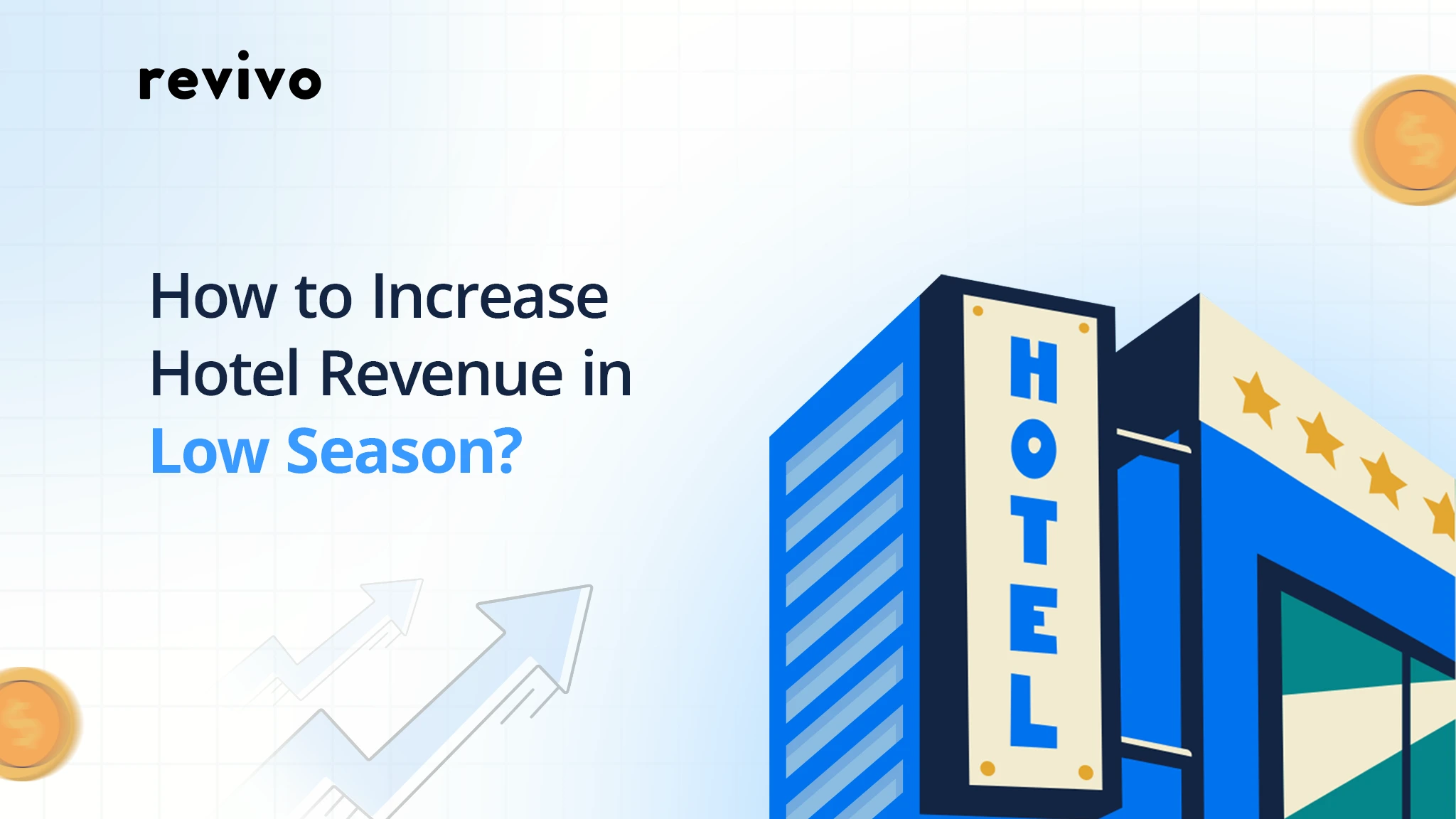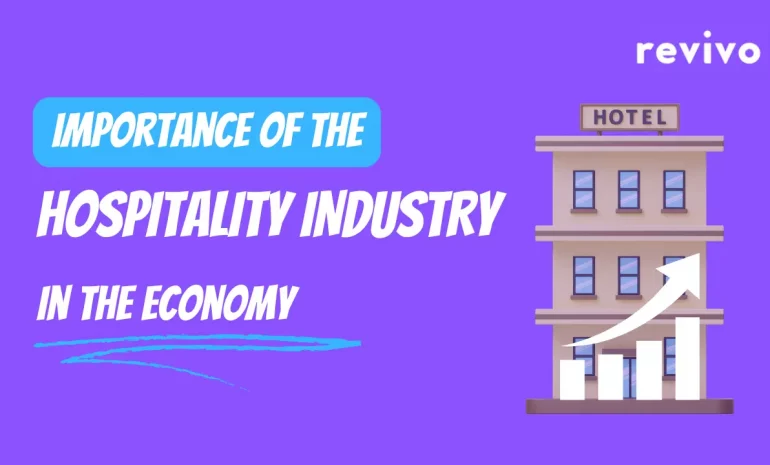The hospitality industry is full of unpredictable experiences. Sometimes, the demand is high resulting in a high number of bookings and increase in revenue. On the other hand, there are times when the Increase hotel Revenue in low season is off and demand is low. Due to low demand, hoteliers witness low occupancy and low revenue generation. Subsequently, this may impact their hotel’s financial performance and long-term sustainability.
What is hotel low season?
Hotel low season typically refers to the period when occupancy rates drop due to certain internal and external factors.
This may include weather, school vacation schedules, or local events. During these months, hotels often experience lower booking demand and, as a result, a decrease in revenue.
Low season can vary based on geographies. For instance, hotels in summer destinations might face a low season in winter, while ski resorts experience it in summer.
Understanding the Increase hotel revenue in low season for your hotel is essential for effective revenue management, as targeted strategies can help bridge the revenue gap.
By adopting flexible and creative marketing, promotions, and customer engagement efforts, you can keep your revenue flow steady even when guest demand is low.
What challenges do hotels face during the low season?
When there is change in travel preferences or seasonal fluctuations, operating a hotel during the low season can pose unique challenges to hoteliers.
Lower Occupancy Rates:
During hotel low season, fewer guests check in and rooms often stay vacant, impacting overall profitability.
Reduced Revenue from Ancillary Services:
Lower foot traffic affects the revenue generated from hotel services such as restaurants, bars, spas, and event spaces.
Increased Marketing Costs:
To attract guests, hotels might need to spend more on marketing, discounts, and promotions.
Staff Management:
Hotels may need to adjust staffing levels to match the lower occupancy rate, which can affect staff morale and service quality if not managed carefully.
Customer Acquisition Cost:
Attracting customers during low season requires competitive pricing or value-added offers, which may increase the cost per booking.
Addressing these challenges requires innovative and well-planned strategies that optimize revenue during these slower periods.
6 Best Strategies to Increase Hotel Revenue in Low Season
During the Increase hotel revenue in low season, properties often face a drop in overall bookings and related services. To keep business thriving year-round, it’s essential to implement progressive strategies that attract guests and maximize earnings.
From dynamic pricing to creating tailored packages and engaging local partnerships, these strategies can help hotels optimize occupancy, boost income, and maintain a competitive edge.
Here are some of the most effective ways to increase hotel revenue during the slower months.
Dynamic Pricing Strategies
Implementing a flexible pricing model can attract a wider audience. You can use Hotel-X‘s automated rate management tool to adjust prices based on occupancy levels, competitor rates, and demand forecasts.
Consider offering limited-time discounts or group rates to incentivize bookings.
Create Value-Added Packages
Design customized packages that combine room stays with other services such as meals, spa treatments, or adventure activities.
By offering a bundled experience, guests perceive added value, and your hotel benefits from increased revenue per booking.
For instance, “Stay & Spa” or “Gourmet Getaway” packages can attract both local and out-of-town guests looking for a unique experience.
Leverage Local Tourism & Partnerships
Partner with local attractions, events, and tourism boards to create co-branded packages. Offering experiences like guided tours, culinary tastings, or entry passes to local attractions can attract regional travelers.
Collaborative marketing efforts also extend your reach, tapping into each partner’s customer base.
Host Events and Conferences
While tourist travel may be low, business and conference travel often continues. Promote your venue as an ideal space for corporate events, conferences, and private gatherings.
Offer customized packages that include amenities like catering, AV support, and accommodation for attendees.
Implement Targeted Digital Marketing Campaigns
Use data-driven insights to launch highly targeted digital campaigns. For example, Hotel-X’s guest segmentation features to promote special offers to past guests, loyalty program members, and regional audiences who might be more inclined to travel during the off-season.
Personalization increases booking conversion rates and improves guest engagement.
Optimize Your Loyalty Program
Encourage repeat bookings by enhancing your loyalty program with off-season rewards. Offer points multipliers or exclusive discounts for loyalty members during low-season months.
This not only drives occupancy but also strengthens customer relationships, which can lead to additional revenue throughout the year.
Conclusion
Tackling hotel low season is challenging but also provides hotels with an opportunity to innovate and explore new revenue channels.
By strategically implementing dynamic pricing, bundling services, establishing local partnerships, hosting events, and targeting specific customer segments, hotels can sustain their profitability even during low occupancy periods.
Hotel-X a comprehensive solution can help you manage strategies, from rate optimization to guest segmentation.
Make the most of the low season with a data-driven, strategic approach—your hotel’s revenue doesn’t have to follow the seasonal trends.
With thoughtful planning and the right tools, success during low season is achievable.
FAQs
1. How do you increase sales in low season?
To increase sales in the low season, focus on curating special promotions and value-added packages that attract guests looking for unique experiences. Dynamic pricing, targeting local and regional visitors, and building partnerships with local attractions are also effective.
2. What do you recommend for hotels with low revenue?
For hotels with low revenue, consider enhancing your marketing strategies by targeting past guests and promoting exclusive offers. Offering loyalty programs, upgrading your property’s amenities, and bundling services (like dining and spa packages) can also increase bookings.
3. How can hotels generate more revenue?
Hotels can generate more revenue by diversifying income streams beyond room bookings. This includes promoting on-site amenities like restaurants, bars, spas, and events. Implementing a loyalty program encourages repeat bookings, while targeted marketing reaches new customers.
4. Which is the largest source of revenue for a hotel?
Room sales are typically the largest source of revenue for a hotel. However, hotels can also significantly benefit from secondary revenue streams, such as food and beverage services, event hosting, and additional guest amenities. Diversifying revenue streams enhances overall profitability, especially during low seasons or slower periods.
5. What makes a hotel profitable?
A profitable hotel is one that maximizes its revenue while effectively managing its costs. Key factors include maintaining high occupancy rates, optimizing pricing, providing high-quality amenities, and encouraging guest loyalty. Investing in technology for efficient operations, embracing marketing strategies that target both new and repeat guests, and diversifying revenue sources can all contribute to sustained profitability.



